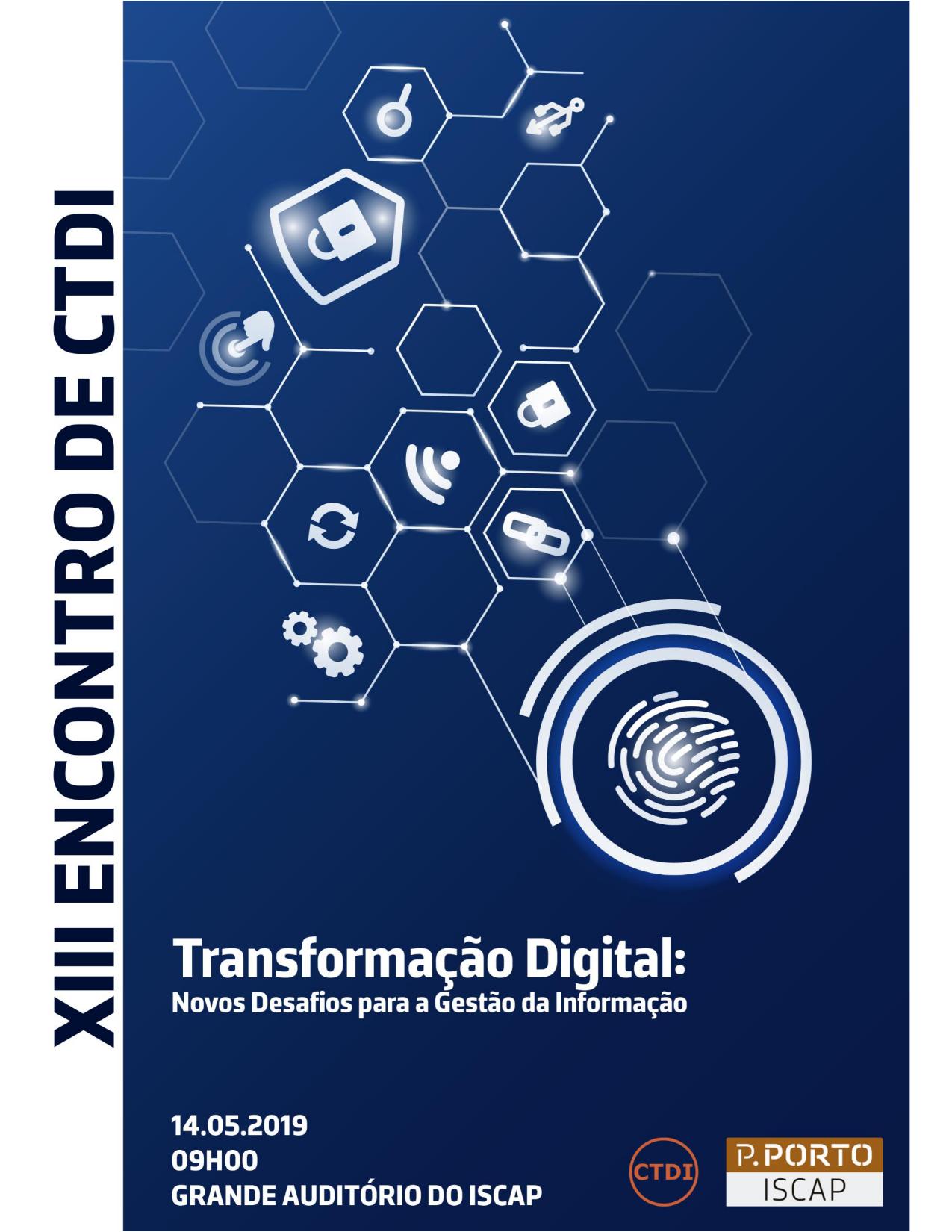Self-directed learning competencies as a prerequisite for knowledge management in open learning resources: e-learning platform case
DOI:
https://doi.org/10.34630/ctdi.vi.4527Palavras-chave:
Self-directed learning competencies, Knowledge management, E-learning platformsResumo
Development of E-Learning and various of E-learning platforms as well as the development of information and communication technologies in general, is so fast that there is almost no doubt that sooner or later they will become the routine for each of us. Information and communication technologies have not only expanded our ability to access, manage, disseminate information, but
also to do this very quickly, over long distances and in even huge quantities. Today, their application in the educational process is not only relevant to the aspects of visualization or activation. They become one of the essential tools of teaching and learning activities in the 21st century, but by expanding our learning opportunities they have also highlighted the need for new
learning competences.
The traditional roles of teacher and learner are replaced by new ones because in E-Teaching /learning environment, the learner must not only work independently, but also more and more often have to define learning goals, methods and activities, organize his / her learning, and so on. This requires that he has the competence of self-directed learning, which can be defined as readiness and ability to formulate individual learning goals independently; adjust them according to need and / or situation; plan and organize your learning process; to solve the various problems that arise during it; reflect on your own experience and evaluate the results and the process itself and, on the basis of those reflections, manage your further learning. The extent to which learners will have mastered this competence greatly depends on how much they will be able to and how qualitatively they will be able to benefit from the E-learning education.
Obviously, one of the essential duties of today's teacher is to create, as far as possible, a learning environment that is educationally friendly, enabling, stimulating, motivating, and constructive. However, the extent to which each learner will take from that environment will depend only on his / her own, namely engagement, motivation, relevant skills and competences, especially self directed learning. Mastering this competence would not only lead to success in teaching / learning but would also largely save time and effort on learning. This competence is relevant for all ages, and the demand for adult learners is even greater.
Referências
Bitinas, B., Rupsiené L., Zydziúnaité V. (2008). Kokybiniy tyrimy metodologija. | dalis. Klaipéda: S. Jokuzio leidykla.
Bitinas, B., Rupsiené L., Zydziúnaité V. (2008). Kokybiniy tyrimy metodologija. !l dalis. Klaipéda: S. Jokuzio leidykla.
Castafio Muhioz, J., Redecker, C., Vuorikari, R., & Punie, Y. (2013). Open Education 2030: planning the future of adult learning in Europe. Open Learning, 28(3), 171-186. doi:10.1080/02680513.2013.871199 4. Electronic Platform for Adult Learning in Europe.
Prieiga per interneta: https://ec.europa.eu/epale/en/about (Ziuréta 2019 04 05). Europos parlamento ir tarybos sprendimas dél Europos kúrybiskumo ir naujoviy mety (Briuselis, 2008.3.28 KOM (2008)
Europos Tarybos iSvadose ,Parengti jaunima XXI amziui* (2008/C 319/08)
Herring J.E. (1998). Informaciniy jgudZiy ugdymas mokykloje. Vilnius
Luobikiené, |. (2003). Kulturos sociologijos skaitiniai : mokomoji knyga. Kaunas : Technologija, ISBN 9955095326.
Jeng, W., DesAutels, S., He, D., & Li, L. (2017). Information exchange on an academic social networking site: A multidiscipline comparison on researchgate Q&A. Journal Of The Association For Information Science & Technology, 68(3), 0638-052. doi:10.1002/asi.23692
Knowles, M. (1977). Self-directed leaming: A guide for learners and teachers. Group & Organization Studies, 2(2), 256-257. https://doi.org/10.1177/105960117700200220
Komisijos komunikate Europos Parlamentui, Tarybai, Europos ekonomikos ir socialiniy reikaly komitetui ir regiony komitetui , Svietimo persvarstymas. Investavimas j gebéjimus siekiant geresniy socialiniy ir ekonominiy rezultaty“ COM(2012) 669, Strasbúras, 2012 11 20). Prieiga per interneta: http://ec.europa.eu/education/news/rethinking/com669 It.pdf. (Ziúréta 2013 03 20).
Mokytojuy didaktinês kompetencijos atitiktis Siuolaikiniams $vietimo reikalavimams. (2005). Vilnius
Puerta Melguizo, M. C., Vidya, U., & van Oostendorp, H. (2012). Seeking information online: the influence of menu type, navigation path complexity and spatial ability on information gathering tasks. Behaviour & Information Technology, 311), 59-70. doi:10.1080/0144929X.2011.602425
Sahlberg P. (2005). Kaip suprantamas mokymasis. Prieiga per interneta: http://www.mtp.smm.It/dokumentai/InformacijaSvietimui/KonferencijuMedziaga/200505Sahlberg.doc (Ziuréta 2011 06 01)
StaniSauskiené V. (2005). Nuolatinis mokymasis kaip karjeros sékmés salyga: studenty poZiúriy tyrimas. Karjeros konsultavimas tarpkultúrinéje Europos erdvéje. Klaipéda
Wilson, T. (2016). A general theory of human information behaviour. In Proceedings of ISIC, the Information Behaviour Conference, Zadar, Croatia, 20-23 September, 2016: Information research, 21 (4). Prieiga per interneta: http:/Anww.informationr.net/ir/21-4/isic/isic1601.html (Ziúréta 2018-04-16)
XXI a. mokyklos. Europos bendrijy komisija. Briuselis, 2007 07 11. SEC(2007)1009. Prieiga per interneta: http://ec.europa.eu/education/school21/consultdoc_It.pdf
Downloads
Publicado
Como Citar
Edição
Secção
Licença
Direitos de Autor (c) 2022 Actas do Encontro de Ciências e Tecnologias da Documentação e Informação

Este trabalho encontra-se publicado com a Licença Internacional Creative Commons Atribuição-NãoComercial-SemDerivações 4.0.


